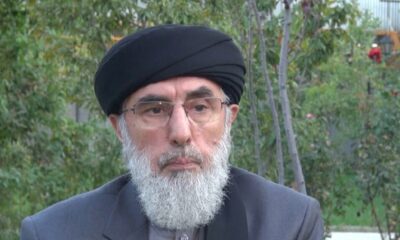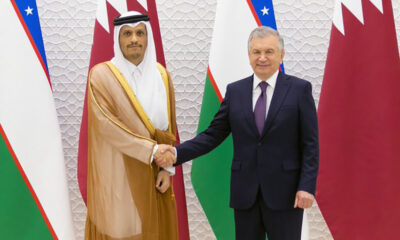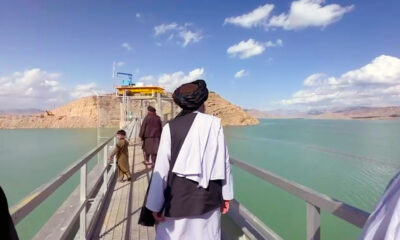Latest News
IEA lays down new rules for TV broadcasting companies
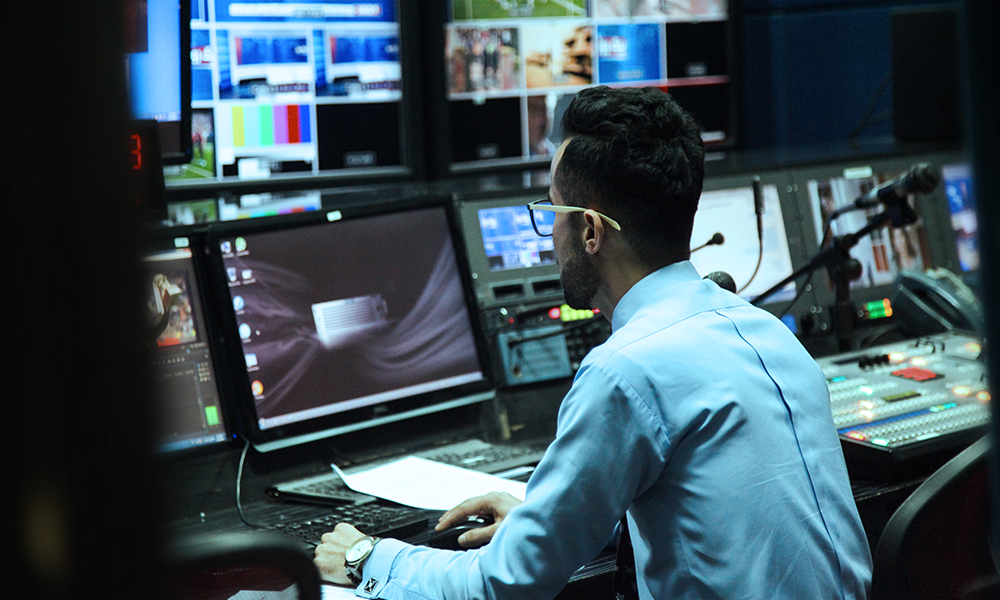
The Islamic Emirate of Afghanistan (IEA) announce Monday it has set out a new “religious guideline” for TV channels to follow.
The Ministry of Promotion of Virtue and Prevention of Vice said in an eight-article statement that media outlets need to adhere to Islamic regulations and values during broadcasting programs.
According to the statement, women are banned from appearing in TV dramas and female journalists and presenters must always wear an “Islamic Hijab.”
The articles of the statement are as follows:
1- The media may not broadcast TV series where women play a role.
2- Broadcasting of comedies that humiliate people are forbidden.
3- Broadcasting of movies and videos that show men’s body parts are forbidden.
4- Domestic and foreign films that are contrary to Sharia law and principles are prohibited.
5- Female journalists must observe the Islamic hijab.
6- Broadcasting serials and programs which portray the prophets are forbidden.
7- TV channels must not broadcast anti-Sharia films.
8- The media must refrain from broadcasting programs and serials in which the religion and dignity of mankind is disrespected.
Akif Muhajir, a spokesman for the Ministry, stated: “They (media) have to obey, otherwise we will see in future how to treat with them.”
Zabihullah Mujahid, Deputy Minister of Information and Culture, said the IEA will not accept other views being forced on them and if the “media want to operate, it is welcome but within the framework of Sharia.”
Latest News
Media Violation Commission bans two TV channels

The Media Violations Commission has ordered Noor and Barya TV channels to stop broadcasting and to appear in court, state-run Bakhtar News Agency reported on Tuesday.
ّIt is said that the decision against the channels was taken for “not observing the principles of journalism.”
Latest News
Hekmatyar slams US for ‘occupying’ Afghanistan’s airspace
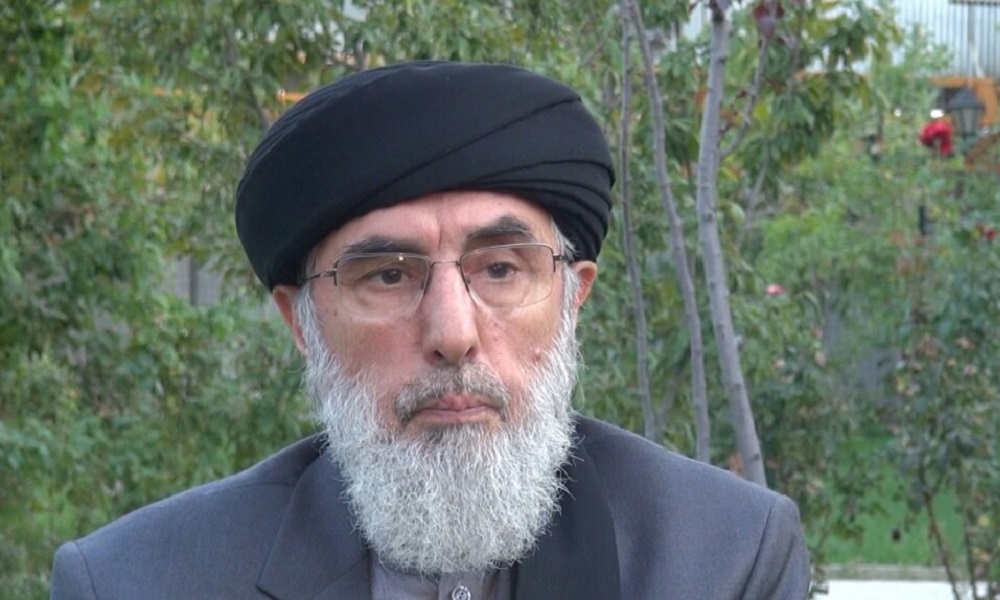
Former Jihadi leader Gulbuddin Hekmatyar has criticized the United States for patrolling Afghanistan’s airspace with drones.
Hekmatyar said in a speech Tuesday that any form of American presence in Afghanistan is unacceptable.
“Afghanistan’s airspace is under occupation. Expressing this issue is our religious responsibility. We have sacrificed the most for freedom. We do not accept any presence of America. We do not accept any kind of foreign rule,” he said.
Hekmatyar also stated that there is a possibility of American troops entering the country again.
“[Former] President Trump’s national security advisor says that their departure was a mistake and that they should return. This is not an ordinary issue. The possibility that they will make a mistake again and return to Afghanistan is very strong,” he said.
The Islamic Emirate has not commented so far on Hekmatyar’s remarks, but it has confirmed sightings of drones over Afghanistan.
“It is required that the respected officials of the caretaker government give explanations on this matter and respond to the concerns of the Afghan people in this matter, because important and great national issues are important for every Afghan citizen and if there is a problem, it will be a cause of concern for everyone,” said Fazl-ul-Hadi Wazin, a university lecturer.
Latest News
Uzbek and Qatari leaders discuss Trans-Afghan Railway project
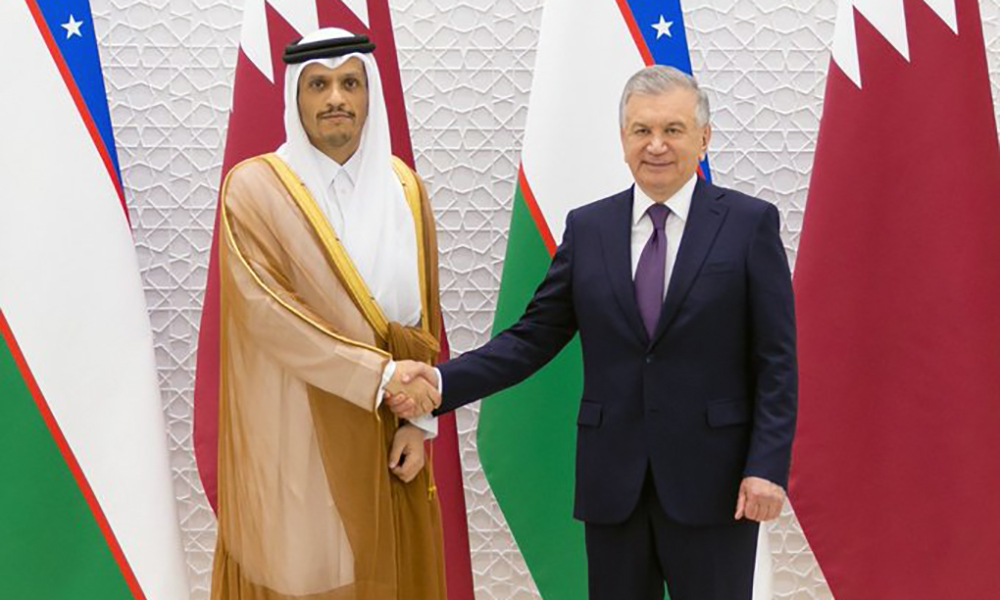
Uzbekistan’s President Shavkat Mirziyoyev on Monday met with Qatar’s Prime Minister and Foreign Minister Sheikh Mohammed bin Abdulrahman Al Thani for talks on a number of issues including the Trans-Afghan Railway project.
The two leaders also discussed bilateral trade issues, strengthening of relations and regional matters, including the escalating situation in the Middle East.
In October 2023, Uzbekistan Railways JSC presented the Trans-Afghan Railway project to Qatar’s Ministry of Transport.
Subsequently, deliberations were held on Qatar’s involvement in the project’s execution.
In February 2021, Uzbekistan, Afghanistan, and Pakistan signed a roadmap for the Termez-Mazar-i-Sharif-Kabul-Peshawar railway construction.
The envisioned transport corridor, estimated at approximately $5 billion, aims to connect Europe, Russia, Uzbekistan, Afghanistan, Pakistan, India, and Southeast Asian nations, boasting a transit capacity of up to 20 million tons of cargo.
-
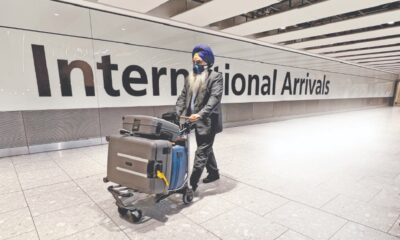
 Regional4 days ago
Regional4 days agoIndian foreign ministry advises against travel to Iran, Israel
-

 Latest News5 days ago
Latest News5 days agoAfghanistan withdrawal probe sparks anxiety within Biden administration: US’s McCaul
-

 Latest News4 days ago
Latest News4 days agoLightning strikes in Helmand kill one, injure three
-

 Latest News4 days ago
Latest News4 days agoTop former US general claims Daesh-Khorasan is ‘on the upswing’
-

 Science & Technology4 days ago
Science & Technology4 days agoChina launch of relay satellite Queqiao-2 for lunar probe mission successful
-
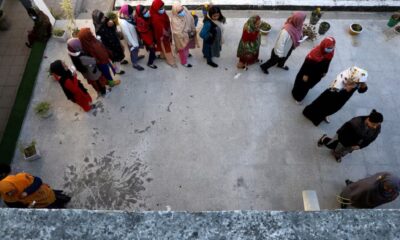
 World5 days ago
World5 days agoVoters in many countries sceptical of democracy, poll shows
-

 Business3 days ago
Business3 days agoAfghanistan reaches self-sufficiency in production of 133 items: MoIC
-
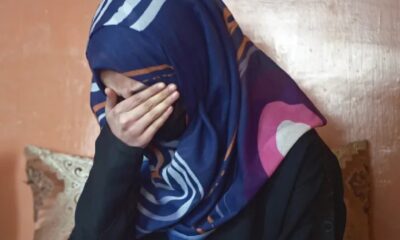
 Health3 days ago
Health3 days agoMajority of Afghans with mental disorders are women: officials




